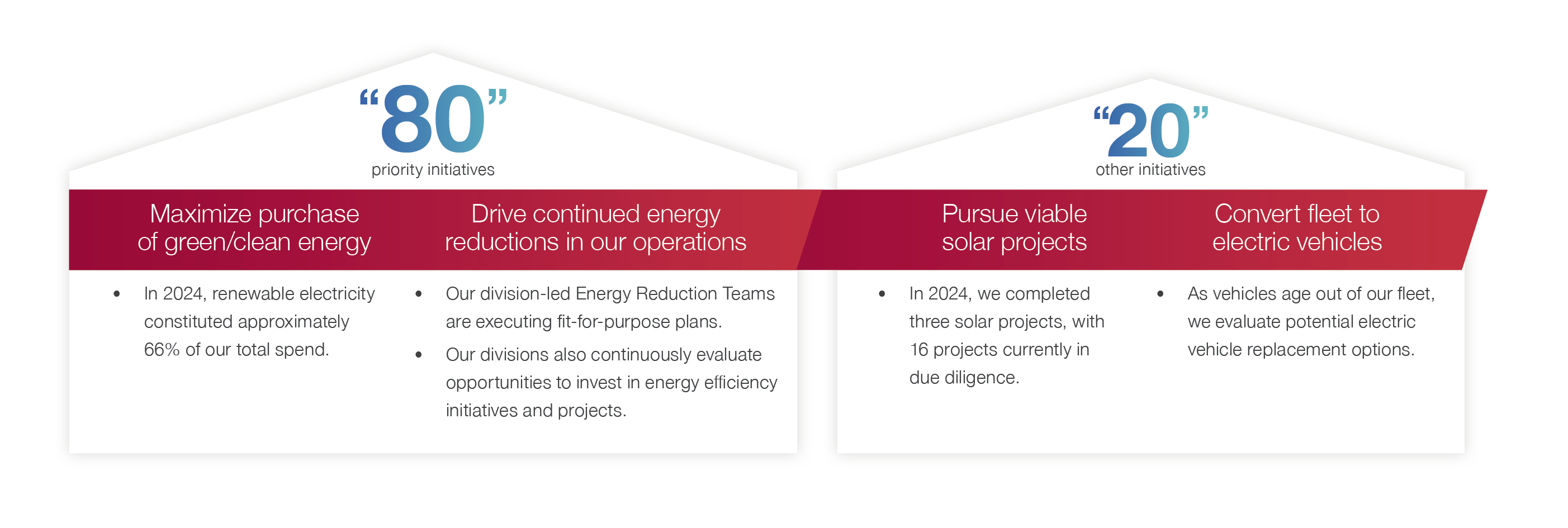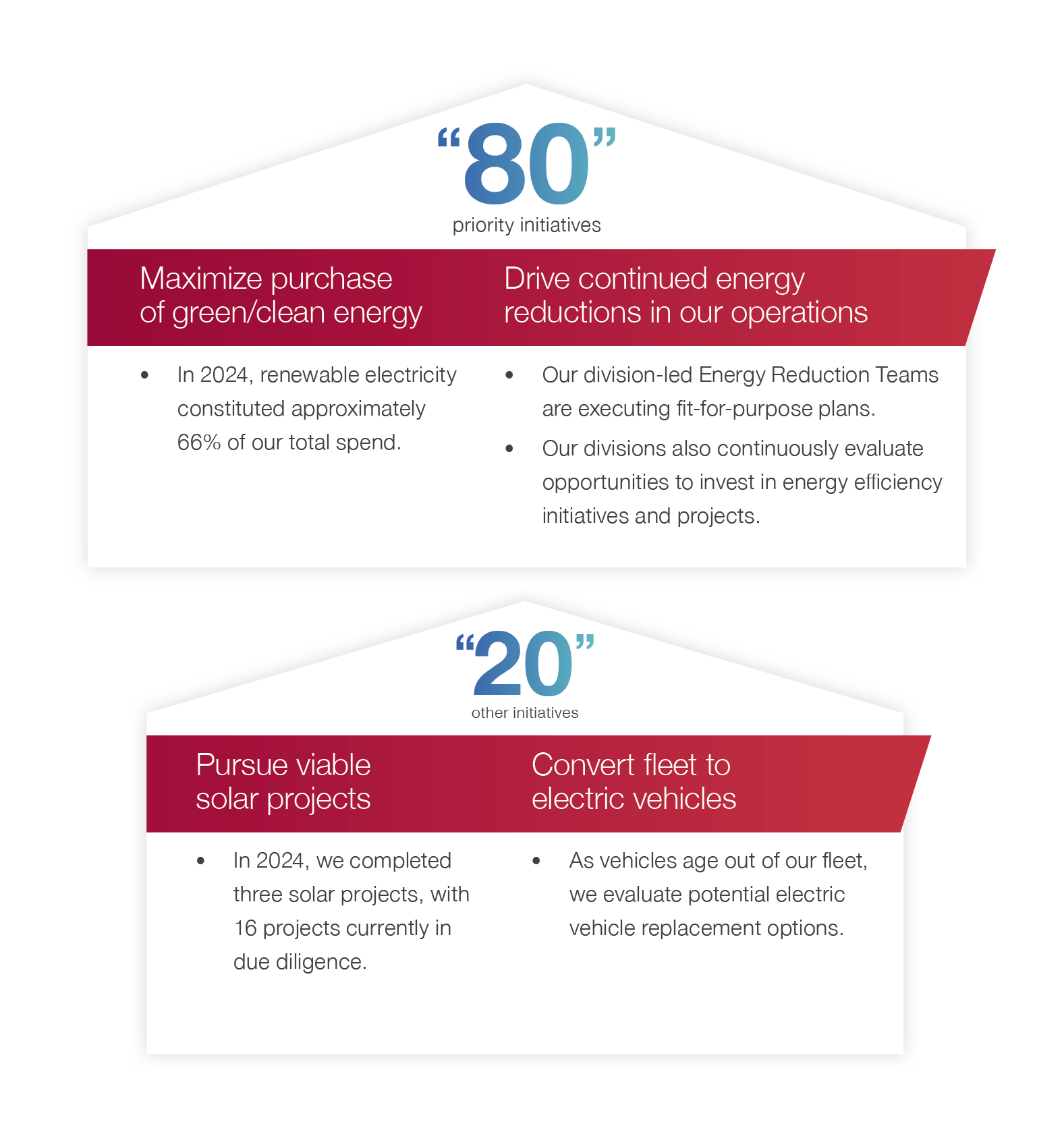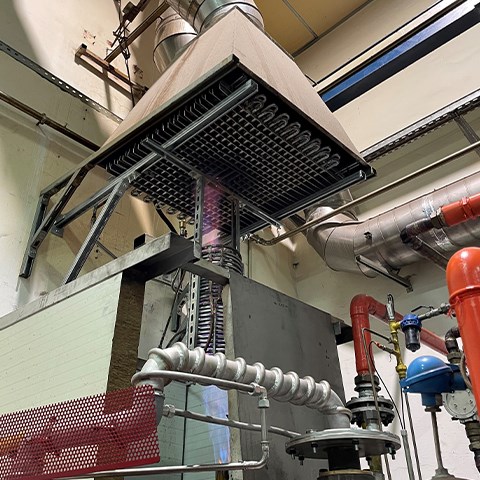
ITW is well positioned for the future – and we are helping to make that future better by taking actions to protect the natural environment. Our fact-based approach is based on continuous improvement and consistent with our “Do What We Say” culture.
Reducing Greenhouse Gas Emissions
ITW recognizes that we must do our part to address climate change, and that requires us to reduce our greenhouse gas (GHG) emissions company-wide.
ITW’s GHG Emissions Reduction Target: ITW intends to achieve a 50% absolute reduction of Scope 1 and Scope 2 (market-based) GHG emissions by 2030, compared with a 2021 baseline.
Through highly effective division-led initiatives, we have made considerable progress, with a 40% reduction in GHG emissions through 2024.
Operationalizing Our GHG Emissions Reduction Target
ITW has a track record of achieving Scope 1 and Scope 2 GHG emissions goals through ongoing investment in resources and technology. Our strategy for our 2030 target aligns with known technologies for GHG emissions reduction and includes the following initiatives:



Environmental Initiatives Across ITW
As ITW colleagues strive to reduce environmental impacts across all our businesses, we continuously evaluate opportunities to invest in initiatives that improve operational efficiencies and reduce our environmental impact. Examples include:
- Energy efficiency projects, such as LED lighting retrofits, HVAC improvements, heat recovery and building improvements
- Manufacturing equipment upgrades and process optimization to improve performance and reduce energy usage
- Recycling scrap materials through vendor partnerships and reuse of pallets and packaging materials
- Manufacturing process changes to reduce scrap material and waste
- Water recycling system installations, which include several stage filter films to treat water for reuse




